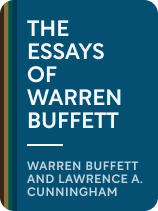

This article is an excerpt from the Shortform book guide to "The Essays of Warren Buffett" by Warren Buffett and Lawrence A. Cunningham. Shortform has the world's best summaries and analyses of books you should be reading.
Like this article? Sign up for a free trial here.
Do you need a financial advisor to manage your investments? Why does Warren Buffett scorn brokers and financial advisors?
Many people who aren’t well-versed in finance believe they need professional advice to invest profitably. But according to Warren Buffett, financial advisors aren’t worth the money. Furthermore, advisers can give misguided financial advice because they bear none of the risks as their clients’ fortunes rise or fall.
Here’s why Warren Buffett says you should steer clear of financial advisors.
The Problem With Financial Advisors
Warren Buffett derides the culture of brokers and advisers who create and sell complicated financial instruments, encourage people to make trades often, and obfuscate any market clarity to convince investors that their services are needed. It’s said that the person who gets richest from a gold rush is the one selling the shovels. Likewise, the chief result of the efforts of brokers, advisers, and money managers is the transfer of wealth away from investors into the hands of “investment professionals,” skimmed off the top in the form of service fees. And while financial advisers and money managers claim they’ll be able to outperform the overall market, the vast majority of them will fail.
(Shortform note: In finance, if the sum of your investments produces a higher return than that of a baseline like the Dow or S&P 500, you can say that you’ve “beaten the market.” While this is the professed goal of money managers, it’s one that they rarely, if ever, achieve. In I Will Teach You To Be Rich, Sethi points out that when financial experts do beat the market, it’s more because of luck than skill. Sethi suggests that money managers’ poor track record is hidden behind a cloud of survivorship bias. Buffett is very much the exception to the rule. Since transitioning Berkshire Hathaway from a textile business to a holding company, Buffett’s portfolio has outstripped the S&P 500 by 3,000%.)
According to Warren Buffett, financial advisors feed off both fear and optimism in the market in order to enrich themselves. The system incentivizes brokers and advisers to recommend more trades and more financial products even in times when investors would be wiser to let their money sit in an index fund with minimal fees.
| Independent Financial Planners If you’re uncomfortable investing without professional assistance, one option is to hire an independent certified financial planner. Instead of being incentivized to sell one institution’s financial products and to encourage frequent trading, independent planners create a tailored financial plan that the client is able to follow or disregard. Many independent planners make no direct transactions on behalf of their clients, and therefore don’t incur the steady stream of fees that Buffett disdains. Independent planners’ earnings are not tied directly to the success of their clients, but neither do they suffer from the conflicts of interest of advisers whose first priority is meeting their firms’ target investment goals. A list of independent financial planners in the US can be found at the National Association of Personal Financial Advisors website. |

———End of Preview———
Like what you just read? Read the rest of the world's best book summary and analysis of Warren Buffett and Lawrence A. Cunningham's "The Essays of Warren Buffett" at Shortform.
Here's what you'll find in our full The Essays of Warren Buffett summary:
- A glimpse into the mind of a man who disagrees with the typical Wall Street mogul
- Buffett's simple yet difficult insights on investing
- Why some of the most widely accepted economic practices are wrong





